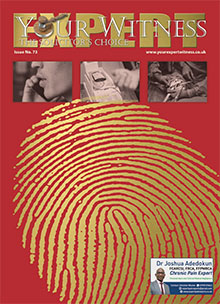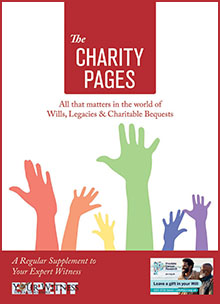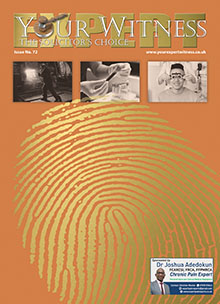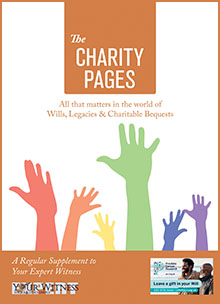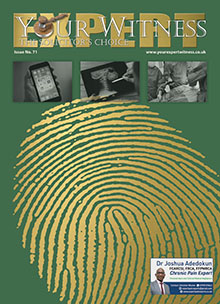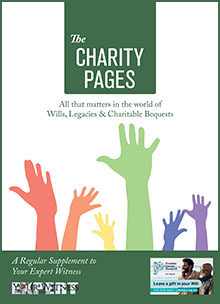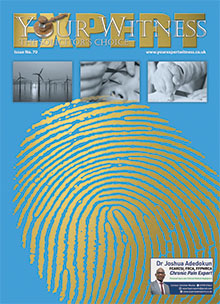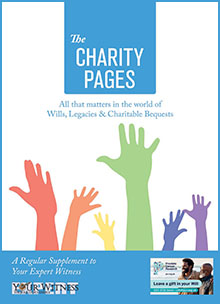THE RELIABLE assessment of contaminated land in the UK can be an unenviable, thankless task.
Rather than a straightforward scientific decision, the determination of contaminated land within the context of UK legislation is often a grey and fuzzy process. As a result, today’s contaminated-land expert must possess not only an array of scientific skills but also considerable interpretative smarts to comprehend the reams of relevant guidance and legislation.
Essentially, it is about the difficulty in determining what actually constitutes ‘contaminated land’.
The SGV debate A case in point is the unrelenting debate surrounding the Soil Guideline Values (SGV). While these potentially can be a screening mechanism for deciding whether a development site is safe or not, some of the conclusions they have inspired to date have made little sense.
The antecedent of the modern day SGV was established in 1977 by the Interdepartmental Committee on the Redevelopment of Contaminated Land (ICRCL) to operate within the Central Directorate of Pollution.
Three years later, it produced a list of numbers offering “tentative guidelines for acceptable levels of selected contaminants in soils”.
In July 1987, 11 chemicals were given “threshold trigger values” while a further eight were furnished with “threshold and action trigger values”.
Unfortunately, the action values for the 11 chemicals never materialised. At the turn of the millennium, the ICRCL numbers were superseded by the much-trumpeted Contaminated Land Exposure Assessment Model (CLEA) and its associated soil guideline values, both of which were regarded as the ultimate tools for the generic assessment of human health risks posed by carcinogens, mutagens, teratogens, pathogens, endocrinedisruptors and other delightful substances.
Although well intentioned and ideologically sound, only 10 SGVs emerged before their production stalled in 2002.
Of the SGVs’ many inherent flaws, the most profound is an uncertainty as to how they relate to planning and the determination of contaminated land under Part IIA of the Environmental Protection Act (EPA) 1990.
More conservative Namely, the SGVs were far more conservative than the Part IIA test for contaminated land, thus although they can be used for initial screening they do not provide the proportional and risk-based determination of contaminated land required under the EPA.
For example, a negligible presence of benzo[a]pyrene (a common by-product of everyday activities such as bonfires and barbecues) in your garden could theoretically result in it being determined as ‘contaminated land’. Another prevalent problem is that some local authorities use the SGVs as definitive determination criteria instead of their intended purpose as tier- 1 risk assessments (the precursors to more detailed risk assessments).
Thankfully, the Soil Guideline Value Task Force (SGVTF) – formed by the Cabinet Office in 2004 as a symposium for regulators and industry representatives to alight on a solution – is making some headway. The initiative was taken forward under the chairmanship of CL:AIRE’s Jane Forshaw, and in 2006 a DEFRA document optimistically entitled The Way Forward was produced, offering a series of mostly sound ways out of the mire.
Enthusiasm waning?
It is due for implementation in 2008, though the fact that the head of DEFRA’s contaminated land division has since changed jobs may imply that the Government’s enthusiasm for taking difficult policy decisions on what constitutes an ‘unacceptable intake’ is waning.
Ultimately, the role of contaminated-land experts – whether out on site, at a planning enquiry or in the courtroom – is to dispel, demystify and reassure.
An illustrative example of this role in action came in 2005, when RSK (the company I work for) was enlisted to assess ground conditions at an estate in Leftwich, Cheshire, after two young children died from the same rare strain of leukaemia. An incident team comprising Vale Royal Borough Council, the Primary Care Trust, Cheshire and Merseyside Cancer Registry and the Health Protection Agency concluded that the investigation must proceed with utmost transparency.
Central to this approach was offering the residents the chance to appoint an environmental consultant of their choosing.
No evidence
Following a lengthy investigative and analytical process that employed cutting-edge methods and guidance, Vale Royal Borough Council’s Environmental Health Officer deemed the land as contaminated under Part IIA, though no evidence was found to link this to the deaths. The site is one where Part IIA determination has not followed a protracted courtroom episode, and it was possible to engage residents in a meaningful way.
One of the principal reasons the residents accepted the outcome was that they were involved at every step of the process. Emotions ran high and the onus was on us to prove that our methodology was sound by involving them in whole process data collection and of risk assessment. It is a testimony to the entire incident team that the residents have, for the most part, accepted that the deaths were not caused by exposure to the site.
The watchword is sensitivity. I can recall numerous investigations where unconsidered, abrupt and downright wrong site investigations have resulted in considerable stress and disruption to people’s lives.
Getting it right is one thing; effectively communicating how you have arrived at that conclusion is an entirely different skill. An expert must be able to do both.
So what should you look for in an expert witness and/or a contaminated-land expert?
Though it has yet to be ratified in any governmental sense, there is a strong case for choosing someone with a Specialist in Land Condition (SiLC) certification. For expert witness cases, I would argue it should be mandatory.
Since its development in support of the Urban Task Force’s Land Condition Record in 1999, the SiLC certification has evolved into a stand-alone qualification of notable resonance in the brownfield industry and one capable of commanding considerable respect. It is not hard to see why.
Run by a Professional Technical Panel (PTP) with the secretariat provided by the Institution of Environmental Management and Assessment (IEMA), SiLC operates under the aegis of the Royal Society of Chemists (RSC), the Chartered Institution of Water and Environmental Management (CIWEM), the Royal Institution of Chartered Surveyors (RICS), the Chartered Institute of Environmental Health, the Geological Society, the Association of Geotechnical and Geo-environmental Specialists (AGS) and the Institution of Civil Engineers (ICE).
Unique qualification
Clearly, this is not some superfluous addendum to the business card; it is the only professional qualification of its type for experienced individuals working with land conditions.
With only 100 or so of them throughout the UK, the relative lack of SiLC members is partly explained by a lack of cohesive financial and governmental backing thus far, and partly because it is not easy to become certified.
The breadth of knowledge and experience that is required by the SiLC exam and its concomitant assessment criteria is extremely rigorous (as reflected by last year’s pass rate of 35%). Graduates truly are the brownfield equivalent of SAS troops.
In 2004, a House Builder Federation document entitled A Way Forward suggested that certification to a standard of SiLC’s stature would be a highly progressive step for land assessment. After liaising with the Remediation Licensing Task Force, the proposal was assimilated into English Partnerships’ National Brownfield Strategy.
Outside think-tank, governmental and specialist organisation circles, SiLC has been gaining a momentum of its own in recent years by appearing on the wish list of major developers such as National Grid Properties during the consultant evaluation process.
To navigate through the contaminated-land quagmire you will need a guide who is considerate, knowledgeable and, above all, patient. To fulfil legislative and housing demands, the UK’s legacy of waste must be assessed with diligence and proportion, and in a safe, commercially viable manner. Sounds easy, doesn’t it?



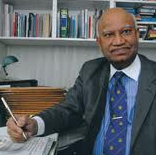 “Speculate before you accumulate. I am a long term regular writer and advertiser in 'Your Expert Witness - the Solicitor’s Choice'. This investment pays me substantive dividends; I get more Expert Witness work with every issue. Not only solicitors and barristers but also judges seem to read it. It is a win-win situation. Success breeds success; I must continue to write and advertise.”
“Speculate before you accumulate. I am a long term regular writer and advertiser in 'Your Expert Witness - the Solicitor’s Choice'. This investment pays me substantive dividends; I get more Expert Witness work with every issue. Not only solicitors and barristers but also judges seem to read it. It is a win-win situation. Success breeds success; I must continue to write and advertise.”












